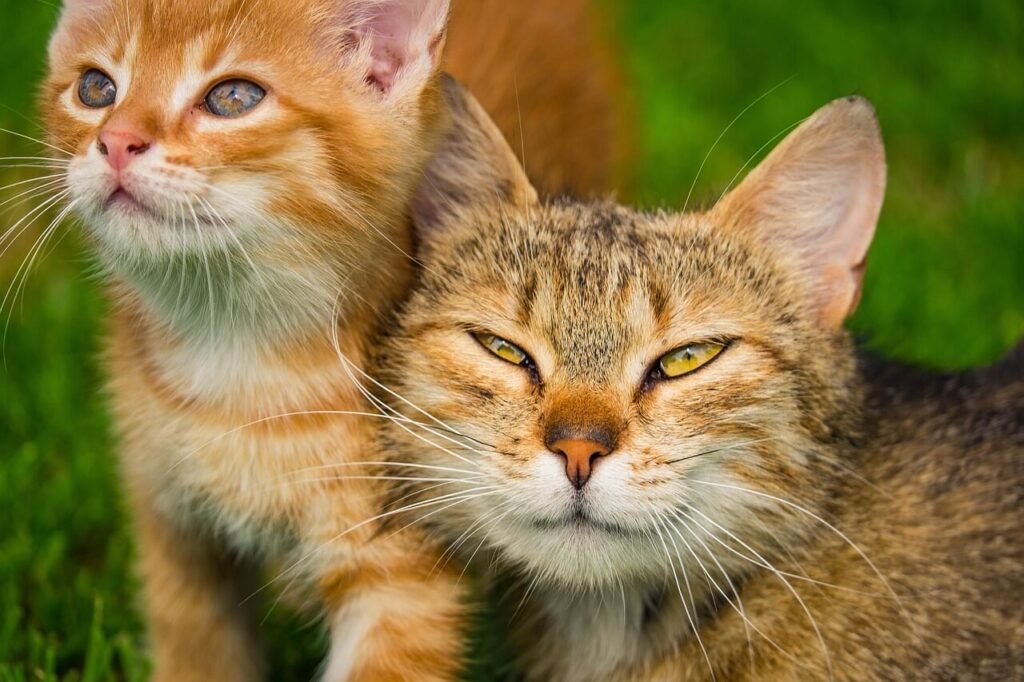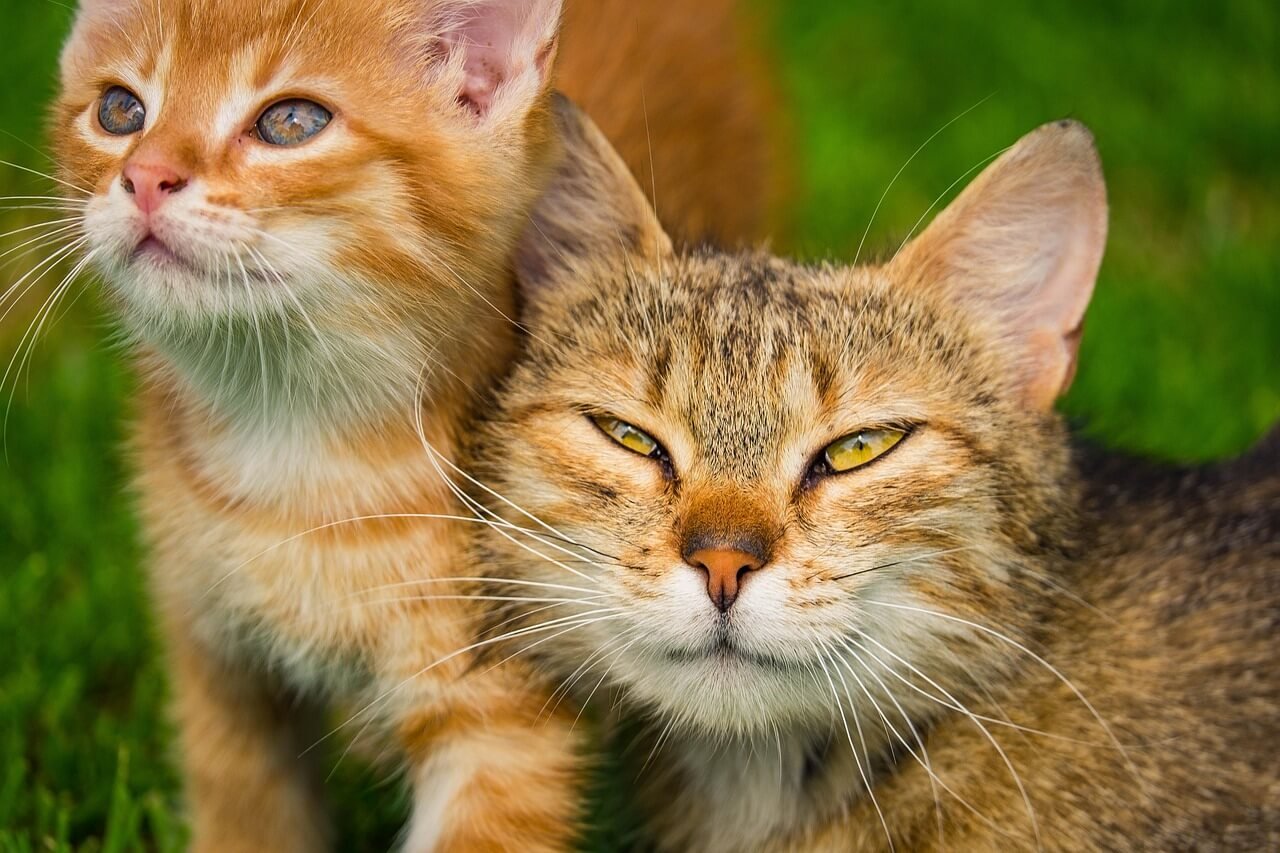Why Is My Cat Foaming at the Mouth?
Seeing your cat foam at the mouth can be alarming, especially if you’re unsure of the cause. While it’s not as common in cats as it is in other animals, foaming at the mouth can indicate a range of issues—from harmless reactions to serious medical conditions. Understanding why this happens and how to respond is crucial for ensuring your feline friend’s well-being. In this guide, we’ll explore the potential reasons behind this unsettling behavior, how to identify warning signs, and what steps you should take to keep your cat safe and healthy.
Common Causes of Foaming at the Mouth in Cats
Foaming at the mouth in cats can stem from various factors, some more concerning than others. Identifying the underlying cause is key to addressing the issue effectively.
Exposure to Toxins or Poisons:
Cats are curious creatures and may ingest harmful substances like household cleaners, plants, or medications, leading to drooling or foaming.Nausea or Upset Stomach:
Gastrointestinal discomfort caused by dietary changes, hairballs, or infections can result in excessive salivation and foaming.Dental Issues:
Oral pain from gum disease, tooth decay, or injuries can cause drooling and foaming as your cat struggles to manage discomfort.Stress or Anxiety:
Overstimulation, fear, or unfamiliar environments may trigger stress-induced drooling or foaming in sensitive cats.Neurological Problems:
Seizures or neurological disorders can lead to foaming at the mouth, often accompanied by other symptoms like twitching or disorientation.
Understanding these potential causes helps you assess the situation and determine whether immediate veterinary attention is necessary.

Signs That Foaming Indicates a Serious Issue
While some cases of foaming are harmless, others require urgent care. Look out for these warning signs that suggest your cat’s condition may be serious.
Difficulty Breathing:
Labored or rapid breathing alongside foaming could indicate poisoning, respiratory distress, or a severe allergic reaction.Lethargy or Weakness:
If your cat appears unusually tired, unresponsive, or unable to move normally, it may signal a critical health issue.Vomiting or Diarrhea:
Gastrointestinal upset combined with foaming often points to toxic ingestion or an infection requiring treatment.Disorientation or Seizures:
Neurological symptoms such as stumbling, collapsing, or convulsions demand immediate veterinary intervention.Swollen Face or Tongue:
Swelling accompanied by foaming could indicate an allergic reaction or bite from an insect or snake.
Recognizing these red flags ensures you seek professional help promptly, potentially saving your cat’s life.
Check this guide 👉 Why Does My Cat Lick My Face? Best 7 Expert Tips!
Check this guide 👉 Why Does My Cat Not Purr? Best 7 Expert Tips!
Check this guide 👉 Why Does My Cat Twitch in Their Sleep? Best 7 Expert Tips!
Possible Causes of Foaming | Recommended Actions |
|---|---|
Ingestion of toxic substances | Contact a vet or poison control hotline immediately. |
Dental problems or oral pain | Schedule a dental check-up with your veterinarian. |
Stress or anxiety | Identify triggers and provide calming interventions (e.g., quiet space). |
Nausea or gastrointestinal upset | Monitor diet; consult a vet if symptoms persist. |
Neurological issues or seizures | Seek emergency veterinary care without delay. |
How to Prevent Foaming at the Mouth in Cats
Preventing foaming involves proactive measures to reduce risks and maintain your cat’s overall health. These tips can help minimize the likelihood of this unsettling behavior.
Pet-Proof Your Home:
Remove or secure toxic substances, plants, and small objects that your cat might ingest accidentally.Maintain Dental Hygiene:
Regularly brush your cat’s teeth and schedule routine dental cleanings to prevent oral health issues.Monitor Diet and Treats:
Avoid feeding your cat foods that are difficult to digest or known to cause stomach upset.Reduce Stress Triggers:
Create a calm environment by minimizing loud noises, sudden changes, or interactions with aggressive pets.Schedule Regular Vet Check-Ups:
Routine examinations help catch underlying health problems before they escalate into emergencies.
Taking these preventive steps can significantly lower the chances of your cat experiencing foaming episodes.
What to Do If Your Cat Foams at the Mouth
If you notice your cat foaming at the mouth, staying calm and acting quickly is essential. Here’s what you should do in response to this alarming symptom.
Assess the Situation:
Observe your cat closely for additional symptoms like vomiting, lethargy, or difficulty breathing to better understand the severity.Check for Immediate Dangers:
Look for evidence of toxin exposure, such as spilled chemicals or chewed plants, and remove your cat from the area if needed.Contact Your Veterinarian:
Call your vet immediately, providing details about your cat’s behavior and any potential hazards they may have encountered.Do Not Induce Vomiting Without Guidance:
Attempting to make your cat vomit without professional advice can worsen the situation, especially if toxins are involved.Keep Your Cat Calm:
Place your cat in a quiet, comfortable space until you receive further instructions from your vet.
Prompt and informed action can make all the difference in safeguarding your cat’s health during a foaming episode.
Common Household Toxins Dangerous to Cats
Cats are naturally curious, which puts them at risk of encountering harmful substances around the home. Being aware of common toxins can help you protect your furry friend.
Household Cleaners:
Bleach, ammonia, and other cleaning products can irritate your cat’s digestive system if ingested.Human Medications:
Painkillers, antidepressants, and cold medicines are highly toxic to cats even in small doses.Certain Plants:
Lilies, philodendrons, and pothos are among the plants that pose significant risks to feline health.Rodenticides and Insecticides:
These chemicals are designed to kill pests but can also harm your cat if consumed directly or indirectly.Chocolate and Caffeine:
Both contain compounds that are toxic to cats and can lead to drooling, vomiting, or worse.
By keeping these hazards out of reach, you can create a safer environment for your cat.
How to Comfort a Cat After a Scary Episode
After a stressful event like foaming at the mouth, comforting your cat is essential to help them recover emotionally. These steps can ease their anxiety and rebuild trust.
Provide a Safe Space:
Allow your cat to retreat to a quiet, familiar area where they feel secure and protected.Speak Softly and Reassuringly:
Use gentle tones to communicate calmness and let your cat know everything is okay.Offer Familiar Items:
Place their favorite blanket, toy, or bed nearby to provide comfort through familiar scents.Engage in Gentle Play:
Once your cat seems relaxed, offer low-energy play sessions to distract and uplift their mood.Monitor Their Behavior:
Keep an eye on your cat for lingering signs of distress or physical discomfort over the next few days.
Comforting your cat after a scare strengthens your bond and promotes healing.
When to Consider Emergency Veterinary Care
Some situations involving foaming at the mouth require immediate attention. Knowing when to seek emergency care ensures your cat gets the help they need.
Sudden Onset of Symptoms:
If foaming occurs unexpectedly without an obvious cause, it’s best to consult a vet right away.Severe Behavioral Changes:
Aggression, confusion, or collapse alongside foaming indicates a possible neurological issue.Evidence of Poisoning:
Visible access to toxins or witnessing ingestion warrants urgent veterinary evaluation.Persistent Symptoms:
Continuous foaming, drooling, or labored breathing over several hours requires professional assessment.Unresponsiveness or Coma-Like State:
If your cat becomes unresponsive or barely reacts to stimuli, head to the nearest emergency clinic.
Timely action in emergencies can mean the difference between recovery and tragedy.
Frequently Asked Questions About Cats Foaming at the Mouth
Is foaming at the mouth normal for cats?
Occasional foaming due to stress or mild nausea is usually harmless, but frequent or excessive foaming may indicate a medical issue.
Can my cat foam at the mouth because of heatstroke?
Yes, overheating can cause panting and drooling, leading to foaming. Ensure your cat has access to cool areas and plenty of water.
What should I do if my cat ingests something toxic?
Immediately call your vet or an animal poison control hotline for guidance. Do not induce vomiting unless instructed by a professional.
How can I tell if my cat’s foaming is related to dental problems?
Look for signs like bad breath, difficulty eating, or pawing at the mouth. A vet examination can confirm dental issues.
Should I be worried if my cat only foams occasionally?
Occasional foaming is generally less concerning than persistent episodes. However, monitoring and consulting a vet is always wise.
Staying Vigilant for Your Cat’s Health
Foaming at the mouth is a symptom that shouldn’t be ignored, as it can range from minor issues to life-threatening emergencies. By understanding its causes, recognizing warning signs, and responding appropriately, you can ensure your cat receives the care they need. Prevention, observation, and timely veterinary intervention are your best tools for protecting your feline companion. Remember, your cat relies on you to advocate for their well-being—so stay informed, stay prepared, and give them the love and attention they deserve.
Keeping Your Dog Safe This Summer: Best 7 Expert Tips! – Learn how to protect your pup from heatstroke, dehydration, and more this summer. Stay safe!
When Was Cat Food Invented? Best 7 Expert Tips! – Discover the history, key milestones, and evolution of cat food from scraps to scientifically balanced diets.
When Was Dog Food Invented? Best 7 Expert Tips! – Discover the origins, evolution, and milestones of dog food, and how it transformed pet nutrition over time.
Kintamani Dutch Shepherd Mix: Best 7 Expert Tips! – Discover the perfect blend of loyalty, agility, and charm with this unique hybrid. Learn expert care tips now!





